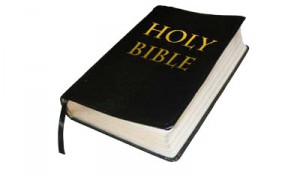
It was theatre on a grand scale and we could appreciate the variety of acts; there was history, tradition, religion, music, singing, fashion, politics and, yes, ‘precision’ in every detail of timing. There was also, and here I have to be extra careful, something of mystery. It appealed to a latent sense of the transcendent. Scattered among the many details was a desire of the organisers to do everything to bring out references to things that should have no interest to modern minds. But they actually do.
Take the spoon, for instance. We were told that Oliver Cromwell, in the mid-seventeenth century, melted down the crown jewels as there would be no further need for them now that what was the United Kingdom had become a republic. But he missed out the spoon. This article of cutlery dates from Norman times (eleventh century) and was used to stir the vessel holding the oil with which the monarch is anointed.
Anointed? Who is anointed these days? Certainly not presidents and prime ministers. So, for its origin, we are pushed back to remember Samuel anointing Saul and David in the Hebrew Scriptures. These leaders and their successors did not receive their appointment from the people or even the likes of Samuel. The anointing, or ‘christening’ to use the Greek form of the word, was a sign that they were chosen by God.
Some modern leaders like to claim they are chosen by God but that is usually because they are a bit shaky about their position and look for any prop that may bolster their claim. Few are convinced. But in bygone days, it was taken seriously. ‘Not all the water in the rough rude sea can wash the balm off from an anointed king’ (Shakespeare, Richard II). No one would make such a claim for a modern ruler. They have to earn their position, otherwise, they will be fired by the voters – or should be. (Oliver Cromwell’s republic did not last long. A few years after his death, Charles II returned from exile (1660)).
So now the show is over, but lingering in the air is a feeling we touched, for a moment, something beyond ourselves. Not a bad thing to do occasionally.
Post published in: Faith

